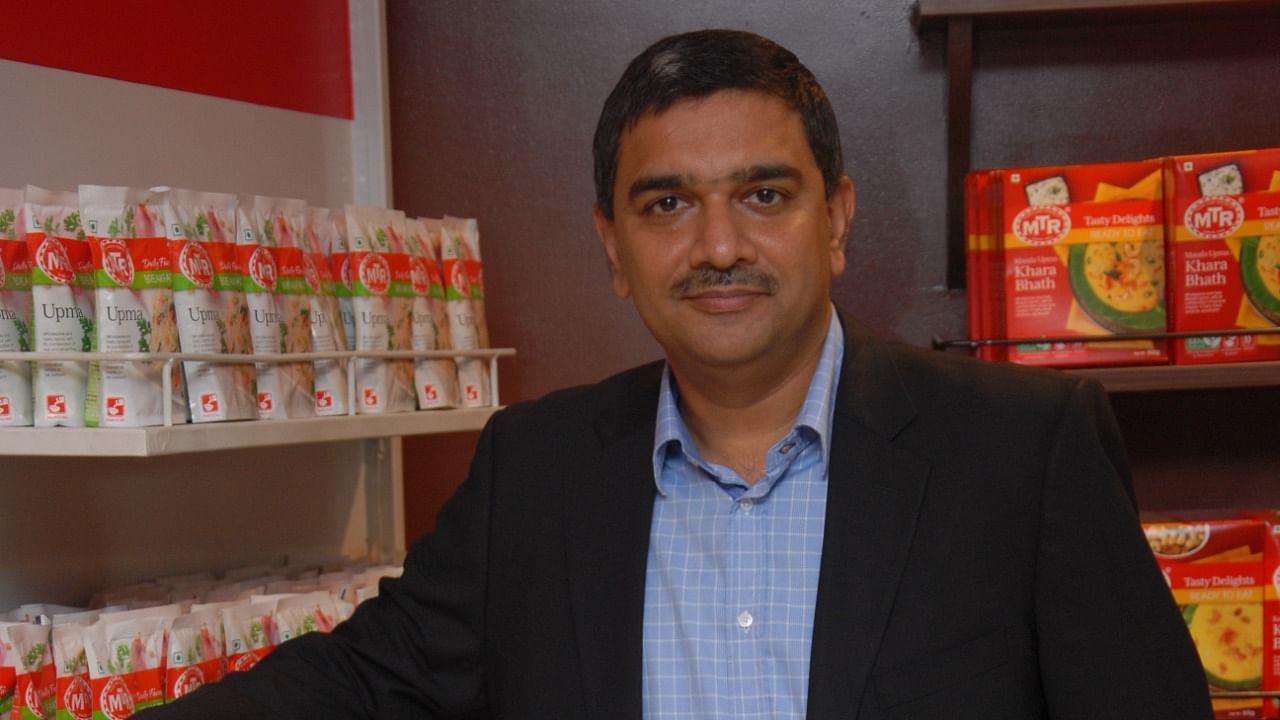
A household name in India, MTR Foods now plans to focus on the masalas and their three-minute foods business. Talking to DH’s Veena Mani, Sanjay Sharma, the CEO of MTR Foods says that the brand would now overtly market the fact that they are vegetarian and how MTR and Eastern Condiments, its sister company under Norwegian company Orkla, will both continue to be in the market.
Your parent company Orkla acquired Kochi-based Eastern Condiments last year. The transaction got completed this March. What is the status of the merger and synergies coming together? What role will the Meeran family have in the company?
The entire transition process will take 18 months and we expect it to be done by 2023. But for now, our parent company wants the procurement rationalisation to be done by December. Since we both make spice powders, our raw materials are the same on a lot of levels. What we are working on right now is whether we want two grades of chillis and other products or can we just procure all of it from one location to make MTR spices and Eastern Condiments. As for the Meeran family, they will be minority holders in this business. Other than that we are working on and analysing how to use each other’s manufacturing facilities to increase our productivity and whether there needs to be a rationalisation on that front too. Having said that, every plant Eastern Condiments has is with a strategy and not arbitrary. So we have to consider all this when we think of rationalising.
Will both brands- Eastern Condiments and MTR merge?
No. They are two strong entities on their own and they will remain that way. Only synergies like production facilities, etc, will come together. In their geography, like in Kerala, they are a very strong brand whereas we have a strong presence in places like Karnataka.
That means effectively, you would be competing with your own company. MTR and Eastern are known brands. Do we see product rationalisation to avoid conflict and how would you be positioning yourself versus Eastern Condiments?
MTR has always been a vegetarian brand and it is deeply rooted in the company. Even in the rationalisation process, we will keep this in mind. Facilities, where MTR products are made, will be exclusively vegetarian. That is precisely why we have not had a non-vegetarian product under our brand. So far, we have not called it out yet that we are a vegetarian brand but now we might take that extra step to go out and tell people that we are a purely vegetarian brand. And, our strength is our packaged foods. We will focus on that. Also, there is enough space in India to build both brands.
What happens to the workforce? Do we see any layoffs?
We are not thinking on those lines. We want to see how everyone in the workforce can be accommodated like for instance, the research and development teams could be strengthened with the teams of both companies coming together.
Orkla’s report mentioned that the decline in first-half profit was partly driven by a decline in turnover, but was also linked to reduced costs in 2020 related to the coronavirus pandemic, especially the effects of the lockdown in India. It also says that the situation in India was challenging in the first half of this year. How do you see the remaining part of the year doing in India?
We anticipate a robust second half. January to March 2021 quarter was good but the problem was in the April-June quarter. Even the decline in the April-June quarter has been single-digit. As already mentioned in the Orkla report, it was due to the lockdown in India. In the first wave, people wanted convenience food. People did not want to order from food delivery platforms. From convenience food to sweets, we saw an increase in demand. Gulab Jamun was our star in 2020. Sales of Gulab Jamun grew by 50%. It is usually a south-centric product but due to the first lockdown, it was heavily used in other parts of the country. We grew about 11.5% last year but that rush was not there in the second wave. People went back to basic during the second wave.
What are your focus areas?
Masalas is one area that we are focussed on right now. And with the Eastern acquisition, it makes it even more important to us. Second, is the ‘ready mixes’ including the three-minute mixes. We are working on that.
Check out latest DH videos here